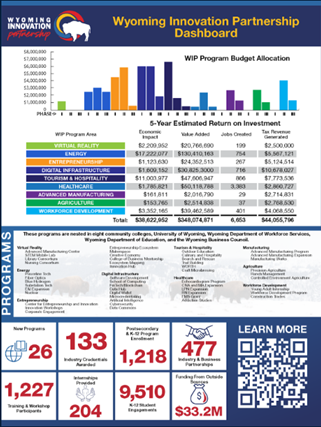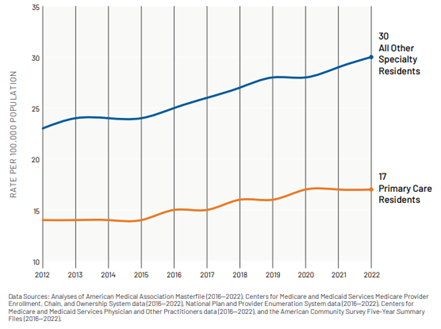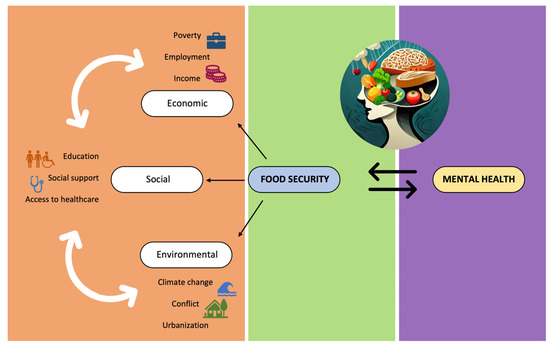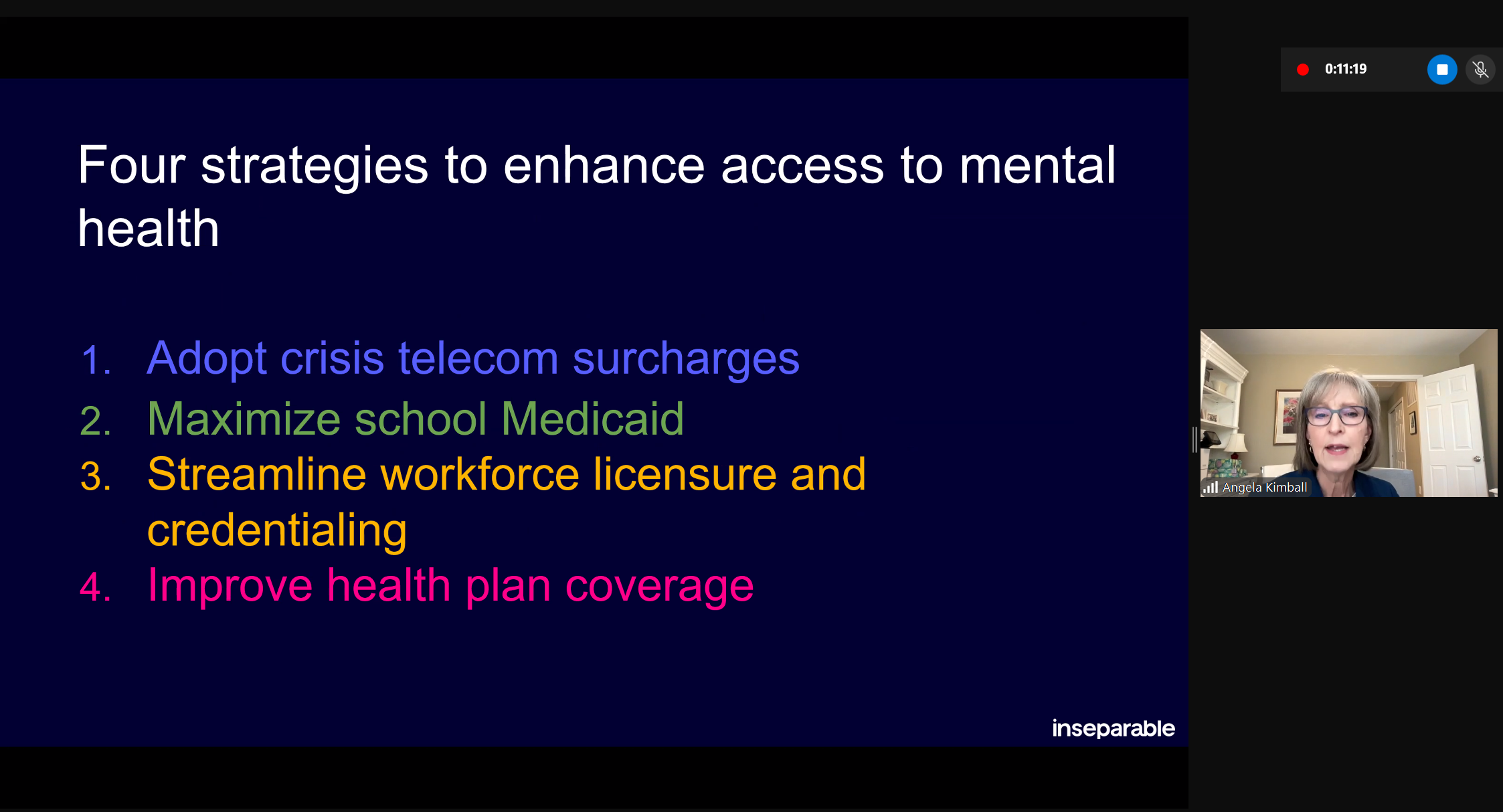This brief highlights four key opportunities for Governors to advance policy that supports entrepreneurship, along with four state examples that highlight these opportunities in action.
(Download)

For decades, Governors of both parties have made entrepreneurship and small business development a top policy priority. As new business formation and self-employment increased during the pandemic, entrepreneurship emerged as a key driver of local, regional and state economies. A strong entrepreneurial ecosystem fuels job creation, boosts productivity and enhances overall economic competitiveness. Governors continue to demonstrate their leadership in advancing innovative policy to position their states as great places for startups and small businesses to develop.
To better understand how Governors are carrying out their policy agendas for entrepreneurship, the National Governors Association Center for Best Practices (NGA Center) and Heartland Forward, the nation’s only think-and-do tank dedicated to advancing economic success in the middle of the country, held a series of structured learning calls with Governors’ advisors and state policymakers from across the country, with an emphasis on those in “the heartland.” The findings of these calls complement an existing body of work by both the NGA Center and Heartland Forward to highlight state policy options for entrepreneurship.
This brief highlights four key opportunities for Governors to advance policy that supports entrepreneurship, along with four state examples that highlight these opportunities in action. Opportunities for Governors to consider include:
- Expanding the state’s entrepreneurial ecosystem
- Streamlining and reducing regulatory barriers
- Reaching and serving entrepreneurs in rural communities
- Championing a vision for entrepreneurship
Expanding The State’s Entrepreneurial Ecosystem
Developing a strong, connected entrepreneurial ecosystem is essential to meeting the Governor’s goals for small business and startup growth. Governors can align and expand partners, policies and resources to create a strong system to support entrepreneurs. Strategies may include:
- Appoint a director for entrepreneurship policy, create a task force or commission to develop a state strategy or designate a state agency to implement the state’s entrepreneurship policy portfolio.
- Collaborate with stakeholders across the state that are equipped to uniquely contribute to industry clusters.
- Scale and replicate successful models and sector-specific strategies for entrepreneurship being carried out at the local level.
- Provide funding to support the growth of entrepreneurship, including grants, loans and tax credits.
- Establish public-private partnerships to support additional capital access for entrepreneurs.
- Ensure students enrolled in K-12 and postsecondary education, jobseekers and incumbent workers have opportunities for career exploration and work-based learning related to entrepreneurship.
- Support opportunities for entrepreneurs and other stakeholders to connect through networking events, mentorship programs and pitch competitions.
Streamlining And Reducing Regulatory Barriers
The complexity of the regulatory environment may discourage or inhibit entrepreneurs from starting businesses. By streamlining regulations and reducing regulatory barriers, Governors can make it easier for startups to grow. Governors may:
- Provide technical assistance to help new entrepreneurs navigate the state’s regulatory environment.
- Leverage technology to streamline the state’s regulatory system to be more entrepreneur- and small business-friendly.
- Establish “one-stop” websites to provide entrepreneurs with information and resources.
- Regularly evaluate regulatory policies and processes and provide forums for feedback from entrepreneurs and small businesses.
- Allow entrepreneurs to use state government assets, including facilities and technical expertise.
Reaching And Serving Entrepreneurs In Rural Communities
Supporting rural communities is a top priority for Governors. According to the Aspen Institute, one in five people in the U.S. live in rural areas. Making the entrepreneurial ecosystem a visible, transparent part of rural economic development planning can improve startup growth statewide. Governors may:
- Ensure startups in rural communities have access to opportunities for small business support from the state.
- Convene entrepreneurs from rural communities to ensure their interests and assets are represented in statewide economic development planning.
- Capitalize on natural amenities in rural areas that can foster entrepreneurship.
- Invest in K-12 and postsecondary education programs in rural communities that provide programming related to entrepreneurship, and invest in rural anchor institutions such as community colleges and libraries.
Championing A Vision For Entrepreneurship
Governors can encourage innovation and advance their policy priorities by championing a statewide vision for entrepreneurship. By leveraging their communications channels and other executive branch functions, Governors can demonstrate their commitment to supporting entrepreneurs and startup growth in their states. Governors may:
- Establish a vision and goals for entrepreneurship in the state in collaboration with key stakeholders.
- Develop a value proposition to attract and encourage entrepreneurship in the state by highlighting assets that enable startup growth.
- Highlight entrepreneurship in the State of the State address and other high-profile speeches.
- Elevate the stories of entrepreneurs who have grown successful businesses in the state, especially those who leveraged state services and resources.
- Issue a proclamation to celebrate National Entrepreneurship Week, Global Entrepreneurship Week or create a state-specific entrepreneurship week.
- Leverage the state government procurement process to incentivize entrepreneurship by setting a goal for small business contracts.
State Examples
ILLINOIS

In January 2025, Illinois Governor JB Pritzker announced the availability of capital grant funding to support entrepreneurship in the state’s key industries. The Tech Incubator Enhancement Grants Program (TIEG), which will be administered by the Illinois Department of Commerce and Economic Opportunity, will make competitive awards in the range of $10,000 to $3 million.
Along with tech incubators, TIEG will also support industries outlined in Governor Pritzker’s 2024 Economic Growth Plan, including:
- Life sciences
- Quantum computing, AI and microelectronics
- Clean energy production and manufacturing
- Advanced manufacturing
- Next generation agriculture, agriculture tech and food processing
- Transportation, distribution and logistics
“Here in Illinois, we’re providing the critical support that startups need to grow and drive the future of technology. Thanks to the TIEG program grants, we’re strengthening our innovation system, modernizing incubators and solidifying Illinois as a leader in cutting-edge industries. I highly encourage all eligible entities to apply for this funding opportunity.”
Governor JB Pritzker
MICHIGAN

In January 2025, Michigan Governor Gretchen Whitmer signed five bipartisan bills to bolster entrepreneurship – including the establishment of Michigan Innovation Fund and an R&D tax credit. The Michigan Innovation Fund will provide $60 million to support the state’s entrepreneurship ecosystem. The new R&D tax credit will allow taxpayers and businesses with 250 or more employees to claim up to $2 million and allow taxpayers or employers to claim up to $200,000 for expenses incurred in collaboration with a research university.
The enactment of this legislative package to support entrepreneurs comes on the heels of Governor Whitmer appointing the state’s first Chief Innovation Ecosystem Officer in 2024, as well as the issuance of Executive Directive 2024-2, which requires state agencies to evaluate their “innovation capacity” to ensure assets like testing equipment, facilities and collaborative R&D are made available for temporary public use.
“Our brand-new, bipartisan Innovation Fund and R&D Tax Credit will empower Michigan entrepreneurs, lower costs for Michigan businesses and create good-paying Michigan jobs. I’m proud that we worked across the aisle on these common sense bills to grow our economy and ensure more people can make it in Michigan.”
Governor Gretchen Whitmer
TENNESSEE

When Tennessee Governor Bill Lee took office, he began an administration-wide mission to expand economic opportunity in rural areas. By issuing Executive Order 1 in January 2019, Governor Lee charged every agency with submitting a “Statement of Rural Impact,” to ensure that Tennesseans in rural communities – including entrepreneurs – are being well served by executive branch offices and have the tools they need to be economically self-sufficient.
Governor Lee also gave a nod to entrepreneurship in his 2025 State of the State address.
“Tennessee is a top contributor to our nation’s economy because of our willingness to adapt and welcome emerging industries. Start-ups, new technology and research and development–these are all pieces to a larger puzzle that will diversify our economy, which will bring even better jobs to Tennessee families and ensure Tennessee remains a leader in the southeast. That’s why, this year, we will dedicate $80 million for strategic ECD grants, signaling that Tennessee is the new frontier for America’s greatest innovators.”
Governor Bill Lee
WYOMING

Wyoming Governor Mark Gordon created the Wyoming Innovation Partnership (WIP) in 2021, a collaboration to align education, workforce development and industry to help drive Wyoming’s economy. WIP supports the state’s economic growth and diversification through building a highly-skilled, ambitious and qualified workforce that responds to the current and forthcoming needs for Wyoming’s businesses and industries.
WIP is led by the Governor’s office and supported by the University of Wyoming, all eight of the state’s community colleges, as well as the Wyoming Business Council, Department of Workforce Services, and Department of Education. Entrepreneurship is included as a key pillar among the sector-based workforce development training programs and public-private partnerships supported by WIP.
Wyoming communities are supported through a range of region-specific programs, including the Bootstrap Collaborative at Central Wyoming College. Complementing these local efforts, statewide initiatives like the Teton Leadership Summit contribute to a comprehensive entrepreneurial ecosystem by equipping both emerging and established entrepreneurs with essential skills and development opportunities.
“Wyoming’s future relies on innovation and the ability to know how a good idea can be developed into a thriving business. Bolstering opportunities to learn critical trades and igniting business acumen is an investment in Wyoming’s students, workforce and citizens.”
Governor Mark Gordon











